Home
- Details
Executive
 |
Carol Bennett, Chief Executive OfficerAs CEO, Carol oversees all of ACCAN's work and operations. She is a highly respected leader with a strong track record of delivering positive change for consumers and communities in all her previous CEO roles. She has outstanding expertise in strategic decision-making, communications, advocacy, stakeholder management, financial performance, collaboration building, government relations and corporate governance. Carol has held senior executive and board positions with national peak bodies in the health sector. Most recently, she was CEO of the Alliance for Gambling Reform from 2021 until commencing at ACCAN in mid-2024. |
|
 |
Gareth Downing, Deputy Chief Executive OfficerGareth oversees a team responsible for ACCAN’s policy work, community engagement and membership. His career has focused on policy and regulation and he has worked on policy across a number of regulated sectors including telecommunications, energy and water. Gareth is committed to advancing consumer’s interest through his leadership of ACCAN’s policy team. Gareth has previously sat on the ACCAN board, and prior to that worked for ACCAN in the role of Senior Policy Analyst providing advice on a wide range of policy, economic regulation and pricing matters. Gareth holds tertiary qualifications in policy, economics and law. |
|
Staff
|
|
Joanna IfieldJoanna Ifield is ACCAN’s Director of Policy. Joanna has worked in senior leadership roles in financial services consumer protection regulation, including compliance monitoring under industry self-regulatory frameworks. She has had a long career in consulting, providing pricing and infrastructure economic regulation advice to regulated businesses in energy, water and transport sectors, as well as government agencies on regulatory policy and reform projects. Joanna has built strong relationships with consumer advocates and representatives, working collaboratively to improve outcomes for consumers.
|
|
 |
Alec BennettsAlec Bennetts is ACCAN's Media and Communications Officer. He oversees external ACCAN communications, including media releases, newsletters, website content, and member communications, and ensures ACCAN is well-represented in national and local media. Alec has previously worked in policy research and political communications. He holds a Bachelor of Arts from the University of Sydney.
|
|
 |
Elise AcklandElise has always had a keen interest in technology and harnessing its potential, particularly for people with disabilities and seniors. Living with a physical disability herself, Elise uses that lived experience and her keen interest in technology to empower people, encouraging them to seek out positive ways for assistive technology to enhance and support their lives. Elise’s knowledge and skills have been built up over decades of experience supporting Australians with internet access, assistive technologies, and communications devices. Her career has included supporting Australians with the switchover to digital TV, the rollout of digital radio, assisting people with different abilities to get online, and more recently in the nonprofit sector, training volunteer cancer survivors to use virtual meeting technology to share their important stories with Australian medical schools. The Accessible Telecoms project is a great fit to share her skills and knowledge with people who may be struggling to keep up with the advancements in telecommunications and assistive technology.
|
|
 |
Con GouskosCon Gouskos leads ACCAN’s work on telecommunications consumer protections. Con regularly engages with financial counsellors and community legal centres concerning telecommunications consumer protections. Con holds a degree in International Studies from the University of New South Wales and a Certificate IV in Government from TAFE. He is currently working towards a Master of Administrative Law and Policy at the University of Sydney.
|
|
 |
David HackDavid is a graduate policy and research officer working in ACCAN’s policy team to advocate on communications issues and provide coordination assistance for ACCAN’s grants program and commissioned research. David holds a Bachelor of Information Communication Technology from Western Sydney University and previously worked in the IT sector before an interest in economics and policy led to further studies in that field. He holds a graduate certificate in behavioural economics and will soon complete a Masters in Behavioural Economics from the University of Technology Sydney.
|
|
 |
Sam KininmonthSam Kininmonth leads the ACCAN policy team’s research work and engagement with the research sector. An experienced consumer advocate, Sam previously worked as a lecturer at the University of Melbourne and RMIT University. He holds a Bachelor of Arts (Honours) from Swinburne University of Technology and a Bachelor of Communication (Distinction) from RMIT University. Sam is completing a PhD on digital media and automation in the ARC Centre of Excellence for Automated Decision-Making and Society at RMIT University.
|
|

|
Rebekah PalmerRebekah Palmer is ACCAN's Communications and Policy Officer, leading social media and marketing efforts while supporting the organisation's communications strategy. She also contributes to the policy team, focusing on consumer protections. Rebekah holds a Bachelor of Communications (Honours) from the University of Technology Sydney.
|
|
 |
Dr Amelia RadkeDr Amelia Radke leads ACCAN's work on digital inclusion, with a particular focus on issues relating to the affordability and accessibility of services for First Nations Australians, regional, rural, and remote Australia, and vulnerable consumers. She has extensive experience in policy and research both in academic and non-government settings. She holds a Bachelor of Arts (Honours) in anthropology and a PhD in legal anthropology from the University of Queensland.
|
|
 |
Audrey ReochAudrey Isadora Reoch is Director of Economic Regulation and leads ACCAN’s engagement with NBN Co on their proposed expenditure, revenue, pricing and service levels for broadband services. Audrey has worked across several fields in infrastructure and regulatory economics through her work at ACCAN and the federal infrastructure and communications departments, where she represented Australia in the Universal Postal Union and International Telecommunication Union. She holds an MA in Social and Political Thought from the University of Sussex and an Honours Degree in Political Economy from the University of Sydney.
|
|
 |
Amelia PearsonAmelia Pearson is an economic policy officer focused on ACCAN's engagement with NBN Co, specifically addressing the economic aspects of broadband services. Amelia has a Bachelor of Politics, Economics and Philosophy and a Bachelor of International Relations from the Australia National University.
|
|
 |
Anabelle KeaneyAnabelle Keaney is ACCAN’s Social Media and Content Manager. With a background in media, marketing and graphic design, she enjoys bringing these disciplines together to craft compelling content in both a written and visual capacity. She holds a Bachelor of Media (Public Relations & Advertising) and Bachelor of Design (Honours) from the University of New South Wales and has studied Creative Writing at the University of Oxford.
|
|
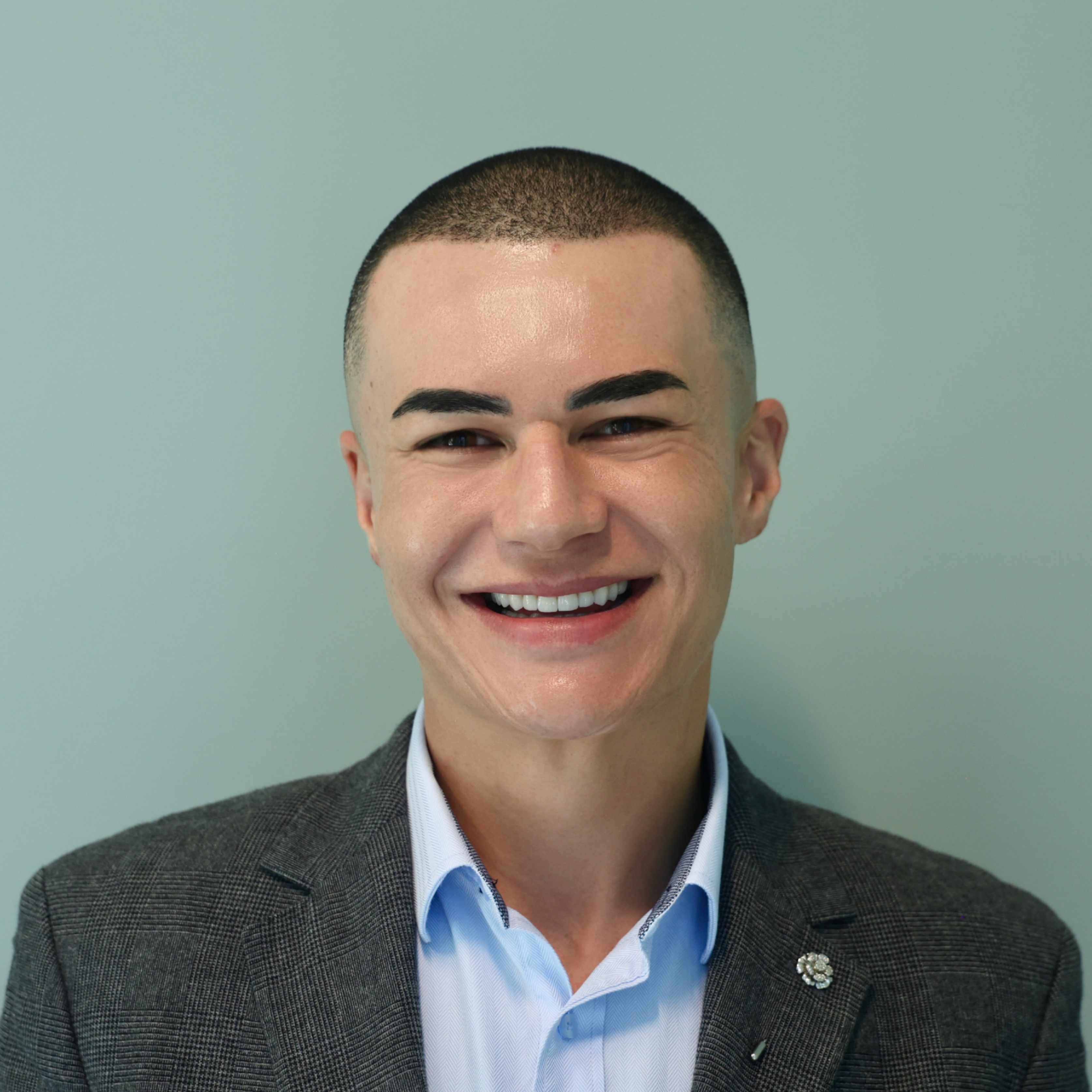 |
Ayden CastroAyden is a highly organised and results-driven Office Manager with extensive experience in office operations, administrative management, and executive support. At ACCAN, he plays a key role in streamlining workflows, enhancing productivity, and fostering a collaborative work environment that supports the organisation’s mission and leadership. |
- Details
Australian Communications Consumer Action Network
PO Box A1158
Sydney South, NSW 1235
- Details
As part of its consultation strategy, ACCAN has four Standing Advisory Forums. The four Standing Advisory Forums have replaced the previous Standing Advisory Committees that made up ACCAN's consultation framework – the Standing Advisory Committee on Consumer Affairs (SACCA) and the Standing Advisory Committee on Disability Issues (SACDI).
The new framework commenced in 2015 and will see each Advisory Forum meet annually. Additionally, where there are specific issues which require consultation, the ACCAN CEO may form Expert Advisory Committees.
- The Members Advisory Forum will focus across all the areas of ACCAN's activity and policy work.
- The Disability Advisory Forum will address issues regarding accessibility and suitability of communications services and products for Australians living with a disability.
- The Indigenous Advisory Forum focuses on Indigenous communications issues and suitability of communications services and products for Indigenous consumers.
- The Small Business Advisory Forum will work to ensure that the voice of small business consumers is heard in the telecommunications industry.
- Details
1. Introduction
ACCAN was formed as a peak body for consumers and consumer organisations on communications issues, including telecommunications and the internet. ACCAN has a central role in advocacy, research, training, consultation, the provision of policy advice and consumer education. One specific function of ACCAN is to administer the distribution of funding previously allocated by the Department of Broadband, Communications and the Digital Economy (section 593 grants).
Individuals and organisations joining ACCAN retain their identity and are able to advocate on their own or their members’ behalf. ACCAN is an important forum in which consumer concerns and views can be debated and shared and, as much as possible, resolved.
The overarching objective guiding ACCAN is to ensure that communications are available, accessible and affordable for all Australians.
The ACCAN constitution was created in 2008 and was last amended in 2023.
- Details
 |
Vince Humphries, Chairperson
Vince worked in communications regulation for over 30 years, most of that time with the Australian Communications and Media Authority (ACMA) and its predecessors. In his various roles, he dealt with most aspects of telecommunications regulation, together with regulation of online content, spam and telemarketing calls. In the area of telecommunications regulation, Vince led the ACMA’s efforts to drive a stronger emphasis on telco compliance with consumer safeguards, develop a range of consumer safeguards specific to the NBN, introduce publication of regular reports on complaints received by telcos and on how telcos deal with financial hardship, and a range of initiatives focusing on consumers in vulnerable circumstances. Vince lives in regional Victoria and has lived experience of some of the challenges in having reliable access to quality communications services in regional areas.
|
 |
Delia Rickard PSM, Deputy Chairperson
Delia has worked in consumer protection for 30 years, the last 10 or which were as the Deputy Chair of the ACCC. In that role she sat of the ACCC’s Communications and Enforcement committees, was a member of their Digital Platforms board as well as participating in multiple areas involving consumer protection. Her passions include stopping scams and creating a more equitable & sustainable society. She also previously worked senior roles at ASIC where one of her main focuses was financial capability. In 2011 she was awarded the Public Service Medal for ‘outstanding public service in the development of consumer protection for financial services’. She has also been awarded the SOCAP Lifetime Achievement award and in 2022 the Inaugural Australian Law Council’s Australian Consumer Rights award. Delia is currently involved with a range of not for profit organisations including the Australian Financial Complaints Authority; Super Consumers Australia; Good Shepherd’s financial inclusion action plans and the Jan Pentland foundation.
|
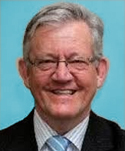 |
Keith Besgrove
Keith has extensive communications policy/regulatory qualifications after fifteen years as a senior manager in the Department of Communications (2000-2014). During that time, he was pivotal to ACCAN's establishment; to securing its initial funding; and in shepherding ACCAN through subsequent government, four-year reviews. Keith has a very wide range of experience of issues relevant to ACCAN. Aside from his work on consumer and disability issues, he developed Australia's first cyber security strategies; over sighted the creation of auDA; crafted legislation to combat spam and internet gambling; established the Do Not Call Register; helped adopt broadband in healthcare and education; managed spectrum sales; and reviewed the TIO. He was responsible for regional and indigenous communications issues for seven years including the second Regional Telecommunications Independent Review Committee, and managed installation of satellite phones and wi-fi points of presence in remote indigenous communities. Since leaving the Department in 2014, he has worked with many not-for-profit groups, including Financial Counseling Australia and spent 3 years as an advocate at Energy Consumers Australia. He is a Chair of the Funding Committee for Dragon Claw -- a web-based service for rheumatoid arthritis sufferers; a member of the board of an arts company, the CAD Factory; and a governing member of auDA. He is a vice-Chair of Internet Australia, and a member of the ACS’ Profession Advisory Board.
|
 |
Bobbie Blackson
Bobbie is a longstanding member of the Australian Deaf community and has been involved in various paid and non-paid capacities across disability/not-for-profit/government/tertiary sectors spanning 40 years. This has included being the Chair of Deaf Australia, the Chair of Deaf Connect, a member of the Australian Disability Advisory Council as well as a number of state and local organisations. She is a life member and Emeritus Chair of Deaf Connect. She was a co-founder of Deaflink which saw Australia’s first consumer-driven relay service eventually servicing all of Queensland. Deaflink merged with Deafness Resources Australia to form Australian Communication Exchange which provided the first National Relay Service. Bobbie has witnessed and supported deaf and hard of hearing people face the challenges of dealing with various traditional and interactive media platforms. Communication technology is potentially an enabler, but also poses many new barriers. Bobbie lives in rural SE Queensland and has experienced the challenges of adequate reliable communications services. Initially trained as a social worker, she has also gone on to be a Justice of the Peace (Qual), a civil marriage celebrant and is a member and Graduate of the Australian Institute of Company Directors. Bobbie has lived experience of challenges of navigating life as a deaf person in a hearing focussed, and now voice-activated world.
|
 |
Chris Dodds
Chris has been involved in the Community Service Industry for over 40 years in both a paid and volunteer capacity. This has included work as a childcare worker in a Women's Refuge, Coordinator at a Neighbourhood Centre and teaching at both TAFE and University. He served on the Board of NCOSS for 14 years including four year (2002-6) as President. He also served on the Board of ACOSS for eight years including five years on the Executive. Chris represents ACOSS on and is also Chairperson of Telstra's Low Income Measures Assessment Committee (LIMAC) which oversees $200 million of assistance provided by Telstra to low income customers each year.
|
 |
Daniel Featherstone
Daniel is a passionate advocate for equitable access to affordable and reliable communications services, with over 20 years of experience in media, communications, and digital inclusion, particularly in remote First Nations communities. Since 2021, Daniel has led the ‘Mapping the Digital Gap’ project at RMIT University, supporting the goal of First Nations digital equity by 2026. Daniel brings first-hand experience from regional Victoria and central Australia, where he managed Indigenous media organisations and initiated programs like inDigiMOB. A long-time supporter of ACCAN, Daniel contributes to policy submissions and advocacy efforts, and is eager to further support ACCAN’s mission on the Board.
|
|
|
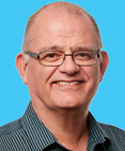 |
Robert Morsillo Robert brings over four decades of expertise in not-for-profit governance and extensive experience in telecommunications and consumer advocacy. Robert’s diverse educational background, which includes a BSc, an MA in Communications, and a focus on community development and public policy, uniquely positions him to contribute to ACCAN’s mission. He brings 40 years of experience in governance roles across various organizations, including Infoxchange, 28 years at Telstra in consumer affairs and digital inclusion, and 15 years in community work. As a research fellow and PhD student at RMIT, specialising in digital social innovation, Robert is committed to fostering cross-sector collaboration to enhance communication access for vulnerable groups. Through his involvement with the ARC Centre of Excellence for Automated Decision-Making and Society, he aims to bring valuable insights into the social impacts of emerging technologies, ensuring ACCAN continues to advocate for those at risk of exclusion in our rapidly evolving digital landscape.
|
 |
David Spriggs David Spriggs is the CEO of Infoxchange, a not-for-profit social enterprise with the vision of ‘technology for social justice’. He is passionate about creating a more digitally inclusive society and the role technology can play in improving the efficiency and effectiveness of the not-for-profit sector. In addition to his role at Infoxchange, David is Chair of the Australian Digital Inclusion Alliance (ADIA) and Deputy Chair of Specialisterne Australia, working to create careers for people on the autism spectrum. David is also a Non-Executive Director of the Alannah & Madeline Foundation, a charity dedicated to keeping children and young people safe from violence wherever they live, learn and play. David holds a Bachelor of Information Technology from the University of Queensland, a Certificate in Theology from Trinity College at the University of Melbourne and is a Graduate of the Harvard Business School Executive Education Program and the Australian Institute of Company Directors. |
- Details
The Australian Communications Consumer Action Network (ACCAN) is Australia’s peak communications consumer organisation representing individuals, small businesses and not-for-profit groups as consumers of communications products and services. ACCAN focuses on goods and services encompassed by the converged areas of telecommunications, broadcasting, the internet and online services, including both current and emerging technologies.
We aim to empower consumers to make good choices about products and services. As a peak body, ACCAN will represent the views of its broad and diverse membership base to policy makers, government and industry to get a better outcome for all communications consumers. Member groups include community legal centres, disability advocates, indigenous organisations, financial counsellors, regional organisations, farmers’ federations, parents groups, seniors organisations and other individual members.
The operation of ACCAN is made possible by funding provided by the Commonwealth of Australia under section 593 of the Telecommunications Act 1997. This funding is recovered from charges on telecommunications carriers.
ACCAN administers a Grant Program as part of its funding agreement with the Commonwealth Department of Communications. The aims of the Program are to support consumer research and representation that is aligned with ACCAN’s strategic plan.
- Details
![]()
Everyone should have measures in place to protect themselves online. Here are some useful tips:
- Use strong passwords
Passwords should be hard to guess but easy to remember. Some things to consider:- Use long passwords (8-12 characters)
- Use a variety of lower and upper cases, special characters (e.g. $, #, *), and numerals
- Avoid using common names and places.
- Use long passwords (8-12 characters)
- Keep your devices, application software and operating system up to date.
- Secure your home and office Wi-Fi with encryption and a password.
- Install a firewall to stop unwanted internet traffic that may be harmful for your computer.
- Back up your data regularly.
- Do not provide personal or financial information over emails.
- Do not open or respond to emails if you do not know the sender.
- Details
As a customer you will deal mainly with your retailer service provider.
Below is a list of steps that you might take, who to contact, and what might happen.
| Issue | Who to contact | Details |
|
Check eligibility for service |
nbn / retail service provider |
nbn website allows you to check if you are eligible for services. Retail service providers will also be able to advise if you are eligible for services |
|
Purchase a service |
Retail service provider |
Retail service providers sell plans to consumers and small businesses. They will also organise for an nbn technician to connect your premises |
|
Get connected |
Retail service provider |
After purchasing a service with a retail service provider they will arrange for equipment to be installed at your premises. |
|
Delay in getting connected |
Retail service provider |
If the technician missed an appointment or connection is taking longer than expected contact your retail service provider. |
|
Property damage during installation |
nbn |
If the nbn technician caused damage to your property during installation you should contact nbn, who will repair this damage at no charge. |
|
Service does not work after installation |
Retail service provider |
If your service does not work after nbn have installed the equipment contact your retail service provider |
|
Complaint of faulty services |
Retail service provider |
If there are any problems with your connection, such as unusable services, dropouts, delays, slow speeds etc., you should raise the issue with your retail service provider. |
|
Query bill charges |
Retail service provider |
If you experience any unexpected charges you should raise these with your retail service provider. |
|
Service outage |
Retail service provider |
If your service stops working for any reason, contact your retail service provider. |
|
Disconnecting |
Retail service provider |
If you no longer want a Sky Muster service, contact your retail service provider to cancel. |
|
Moving services |
Retail service provider |
If you are moving house, contact your retail service provider about changing your service to different premises. Fees may apply to move a service. |
|
Damaged or moved equipment |
Retail service provider |
If the equipment gets damaged (for example during storms or an object hitting the satellite dish) contact your retail service provider. An nbn technician may be required to visit your premises to correct the position or replace the equipment. There may be a cost, check with your provider. |
|
Complaint about retail provider or nbn not addressing problems encountered |
Telecommunications Industry Ombudsman (TIO) |
If your complaint to your retail service provider or nbn has not been dealt with, contact the TIO. The TIO will refer your complaint to your provider or nbn and give them 10 days to fix your problem. If this does not solve your problem the TIO will work with you and the provider to see if you can agree on how to fix the problem. Finally, if the issue is still not resolved then the TIO can investigate your complaint. |
|
Changing retail service provider |
Retail service provider of choice |
Switching between retail service providers is easy with Sky Muster. Just make sure there are no early termination fees with your current retail service provider. |
|
Think you have seen a scam |
Scam Watch |
Internet scams may attempt to take your money, steal your identity, or access your personal information. If you think you have seen a scam contact Scam Watch. |
How to effectively complain and ensure your rights
- Outline your problem and the outcome that you want to your retail service provider. Ask for a response in a reasonable timeframe (e.g. two weeks). Make a note of all your dealings with your retail service provider for future reference.
- If your issue is not resolved contact the Telecommunications Industry Ombudsman
Where do I get more information?
Contact details:
- ACCC on: 1300 302 502
- Activ8me: 13 22 88
- ANT Communications: 1300 268 266
- BorderNet: 1300 730 302
- Clear Networks: 1300 855 215
- Harbour ISP: 1300 366 169
- IPSTAR: 1800 477827
- nbn: 1800 687 626
- Reach Net: 1800 687 626
- Sky Mesh: 1300 759 637
- TIO: 1800 062 058
Further consumer tips can be found on our website.
- Details

Sky Muster will also be used to deliver services in partnership with educational, community and healthcare service providers.
For example, educational services will be delivered in partnership with State and Territory Departments of Education. The process for connecting will differ depending on the body delivering the service.
My child receives distance education, what service will they receive and when?
Premises with geographically isolated children who receive distance education and are in Sky Muster designated areas, may be eligible to receive a second service to their premises which offers an additional 50GB per month per student (up to 150GB for 3 students - special arrangements may be made for sites with more than 3 students).
Your RSP will be able to verify the process required to place an application. Arrangements are on a state and territory basis.
There are currently four providers offering education services over Sky Muster. You can choose between two speed tiers (12/1Mbps and 25/5Mbps) and port options (all children's education through the same port or different ports).
Is this available for other education services, such as university?
No, educational services will only be available to distance education school children.
- Details
![]() You should report all problems to your retail service provider in the first instance.
You should report all problems to your retail service provider in the first instance.
What if the service stops working?
You should report any service problems to your retail service provider, who will investigate the cause of the problem. Retail service providers should endeavour to repair all faults in a reasonable timeframe.
Who is responsible for services; nbn or the service provider?
The retail service provider is responsible for the service that they deliver to you under the contract that you agreed to.
What if I don’t get the speeds and performance that I was expecting?
There are a number of factors that may affect your service.
If you exceeded your data allowance then your retail service provider may slow your service, usually to 128kbps.
You should contact your retail service provider if the performance is below expectation. Outline the service issues that you are having and how it is not meeting your expectations. If they are unable to improve your service you can take your complaint to the Telecommunications Industry Ombudsman (1800 062 058).
Is there equipment that I can purchase that will improve my experience of the service?
There are a number of products, such as specialised satellite boosters to routers, which claim to improve the performance of the service and reduce data consumption for satellite connections.
These can be very costly and may offer little to no improvement. You should check your performance with your retail service provider before making expensive purchases. There may be other solutions to improve performance issues you are experiencing.
What if the dish or wiring gets damaged?
The satellite dish and related equipment up to and including the modem remains the property of nbn. If damage occurs immediately contact your retail service provider. An nbn technician may visit your premises if any damages occur. If the damage was caused by you then you may have to pay for the repair. If damage is caused by weather events, then you might be able to recover the costs from your home and contents insurance. It is recommedned that the nbn equipment is listed on your insurance policy.
What are my consumer rights?
As a consumer you have a number of rights under the Australian Consumer Law. In particular your retail service provider must:
- provide clear and accurate information in advertising, contracts and bills
- give you help if you’re having problems paying bills and take steps before disconnecting your service
- provide good service and deal quickly with complaints
- provide a repair, replacement, refund, compensation or cancellation, depending on the circumstances.
If your retail service provider is unable to fix performance issues you can raise your complaint with the Telecommunications Industry Ombudsman.

CHECK!
There may be costs associated with repairing damaged equipment. Ask your retail service provider what costs might apply.
- Details
![]()
Connection will be arranged by your retail service provider after you have ordered and agreed to a service. A standard nbn installation is free of charge. However, retail service providers may charge connection fees for their plans.
Retailers must supply services within a reasonable timeframe under Australian Consumer Law. How long it takes to get connected will depend on your location and retail service provider. Currently, there is a waiting list for connections.
Do I contact nbn about a connection?
No. When you order a plan from a retail service provider they will organise for your connection.
What is the process for getting connected?
There are six easy steps to get connected:
- Choose a retail service provider and plan which suits your needs
- Your chosen provider will inform you if you are eligible and give you an estimated installation date
- nbn will contact you to confirm an installation time and date
- Your can purchase, or you retail service provider can provide you with a router
- The nbn technician will install the equipment (satellite dish, internal and external equipment and the required wiring); this may take a few hours and you will need to be at home.
- Plug your computer or the router into the nbn modem to begin using Sky Muster services
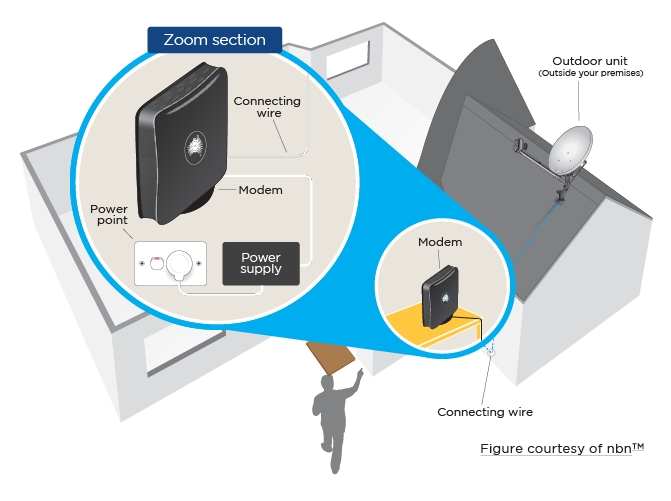
Figure courtesy of nbn
How do I prepare for the installation?
There are a number of things that you can do to prepare.
- Permissions - on installation day the technician will need to ensure that there is permission to carry out the installation. This means that an adult (18+) needs to be home to sign the documents. If you rent the property, permission from the landlord is required.
- Equipment location – you should consider where you want the equipment to be installed. This may require some preparation of the area.
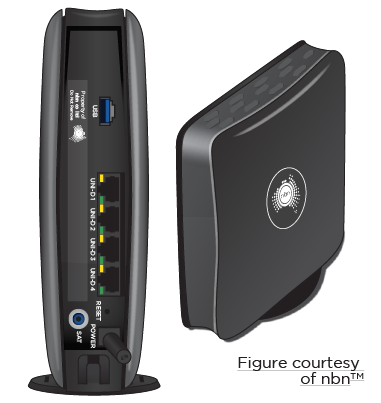
- The satellite dish – this should have clear line of sight of the north sky. The dish may be attached to the roof or the wall of your property.
- Wiring – the satellite dish is connected by wiring to the internal modem
- The internal modem – this is installed inside your premises and needs a power source to work.
- The router – this plugs into the modem and should be located near the place that you will be using the internet connection the most (e.g. home office). The closer the router is to the computers or devices that you use the better the performance is likely to be. Walls, ceilings and floors may affect the signal, especially in some older buildings. Your Wi-Fi signal might have some interference problems if it is located near other appliances or household electronics, such as fridges or microwaves.
- The satellite dish – this should have clear line of sight of the north sky. The dish may be attached to the roof or the wall of your property.
What happens on installation day?
Prior to installation nbn will confirm that the appointment still suits you.
When the nbn technician arrives they will inform you where they are from and show you their I.D.
The nbn technician will then examine your property and recommend the best location for the equipment. They will also confirm any other dishes that require de-installation.
The equipment location should also suit your use of the equipment, so you should clearly explain to the technician where you use the internet in your house to ensure that the location suits you.
Before work commences they will seek your permission to carry out the work.
The technician will then install the equipment. This may take a few hours and you will need to remain on your premises for the duration of the installation. Your property should be left in a good condition.
How big are the satellite dishes?
Most houses will receive the standard satellite dish which is 80cm in diameter. A few houses may need a larger 1.2m dish.
Is there a waiting list available to see how long it takes to get a service before signing up?
No, there is no published waiting list. Your retail service provider can give you an indication of the earliest possible connection date but is not able to guarantee it. nbn will guarantee your installation date once your retail service provider has processed your order.
Can I use my current equipment?
You need a new nbn satellite dish and modem to access Sky Muster.
You may be able to use your current router. Ask your retail service provider about this.
What power is required to run the equipment?
The nbn equipment is powered by 240V AC. If your premises is not connected to the grid ask your retail service provider about a 12/24 V DC option, which may be more suitable.
The router will also require power to function.
What if my house is not a standard installation?
Some properties will be a ‘non- standard installation’. This means that they require a variation to the standard set up. Non-standard installations may incur additional costs.
When the nbn technician assesses your house, they will discuss any variations that are required. At this stage you can cancel your service at no cost if there are additional charges which you were not aware of.

IMPORTANT
Any additional costs will be paid through your retail service provider, not the nbn technician.
nbn technicians will never ask for money and you should never pay them directly.
- Details
![]()
There are a number of options to get voice services:
- You can continue to use your current voice services.
- You may be able to use voice over broadband (called Voice over IP or VoIP) from your retail service provider.

IMPORTANT!
Consumers in satellite areas can continue to use existing phone and internet services (except ISS services).
What is VoIP?
VoIP is a service that uses the internet to make voice calls, instead of the traditional copper connection.
VoIP offered through retail service providers may be of comparable quality to your current voice service. However, you are likely to experience a delay when calling other satellite phones. If you use medical alarms, faxes or are priority assistance then you will not be able to use Sky Muster for these services and should continue to use your current service.
VoIP works by connecting your current telephone to your router. This may require the use of an additional piece of equipment, called an Analogue Telephone Adapter or ATA.
VoIP can also be offered online through over the top providers, such as Skype. They usually work through your computer or devices and use microphone headphones. However, these are not as reliable and you may experience some poor performance.
What costs are associated with VoIP?
Calls are charged in a similar way to your current voice services, but may cost less.
Note: As VoIP uses the broadband connection, making and receiving calls will also use your data allowance. Calls usually use a very small amount of data. However, if you use up all of your data you may no longer be able to make or recieved calls over this service.
Can I contact Triple Zero (000) and 106 Emergency Call Services using VoIP?
A VoIP service from your retail service provider should be able to contact emergency services.
Online VoIP services, such as Skype, are not able to access emergency services.
Can I get priority assistance services?
No. Sky Muster does not offer priority assistance services. You will need to continue to use your current voice services to access priority assistance.
Can I use disability equipment over VoIP?
Disability equipment, such as TTYs may work with Sky Muster. You should check with your retail service provider and ask them to test it to see if the equipment works before arranging disconnection of existing services.
Can I keep my number with a VoIP service?
You may be able to keep your number. Ask your retail service provider.
Will there be a difference in the quality of service between VoIP and my current voice service?
To prevent any loss in performance of voice service you should ask your retail service provider to ensure that Quality of Service settings are enabled across all your equipment.
Satellites are known to experience delay (latency) issues. This can impact services such as VoIP. This is likely to affect calls between two satellite phones.
Can I bundle Sky Muster services with my current voice service?
Yes, some providers are offering a bundle of current voice services with Sky Muster broadband.
Can I just get a VoIP service and not a broadband plan?
No, you have to purchase a broadband plan in order to get a VoIP service.

IMPORTANT!
VoIP services will not work in power outages.
Consider what alternative arrangements you need in case of power outages.

